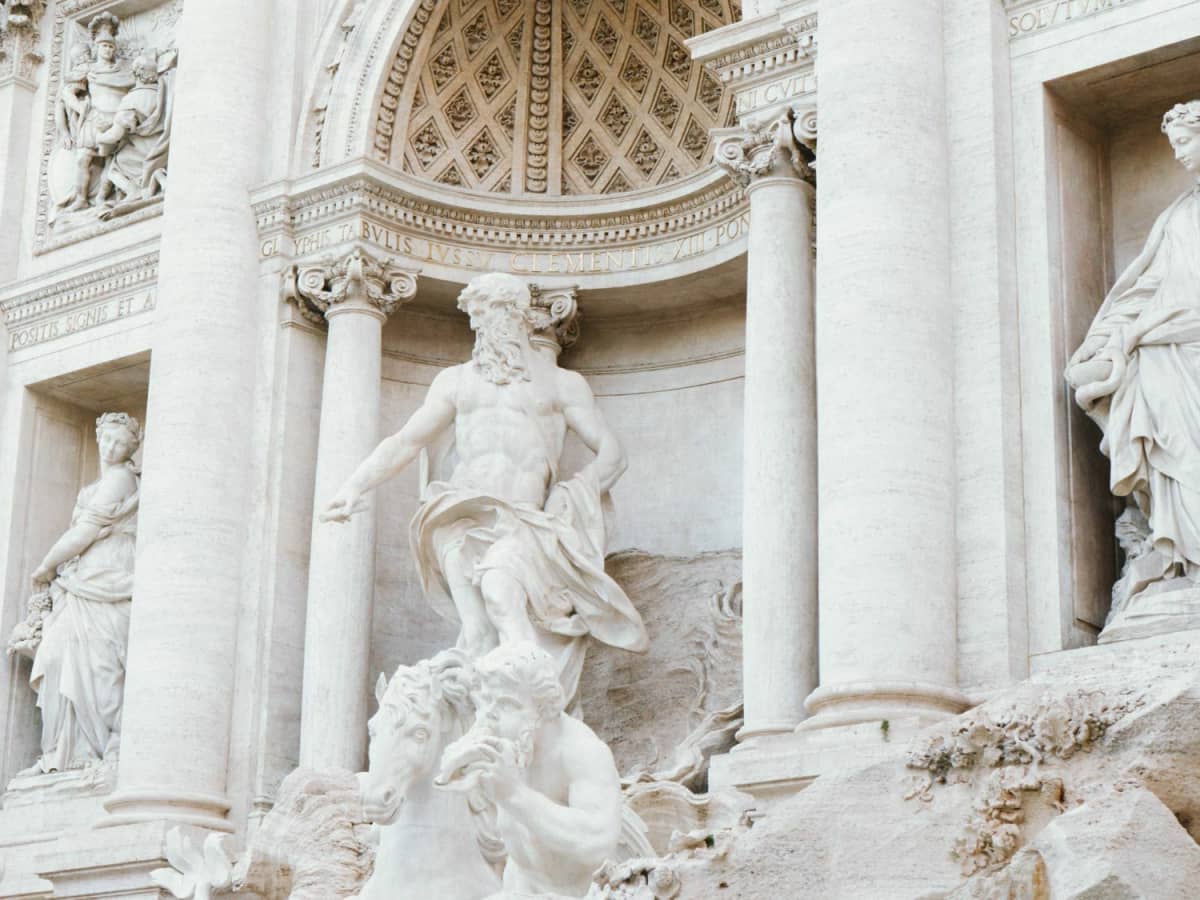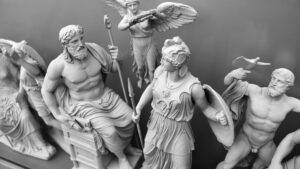Greek mythology, with its epic tales of gods, heroes, and monsters, has captivated human imagination for millennia. These ancient stories, born in the cradle of Western civilization, continue to resonate in our modern world, shaping everything from literature to pop culture, business branding to personal growth. But why do these myths, crafted thousands of years ago by poets like Homer and Hesiod, still hold such power? In this article, I’ll dive deep into the enduring relevance of Greek mythology, exploring its influence on contemporary culture, its universal themes, and its practical applications in today’s world. Through storytelling, analysis, and real-world examples, we’ll uncover why these ancient narratives remain as vibrant as ever.
The Timeless Appeal of Greek Mythology
A Foundation of Western Culture
Greek mythology is more than a collection of fantastical stories; it’s a cornerstone of Western culture. From the English language—where over 150,000 words trace their roots to Greek—to philosophical ideas that shape modern thought, the influence of ancient Greece is undeniable. These myths were not mere entertainment for the Greeks; they were a way to explain the unexplainable, from natural phenomena to human emotions, and to impart moral lessons that guided society. Today, those same stories continue to inspire and inform, proving their staying power across centuries.
Greek Mythology in Modern Media
Literature: Retelling Ancient Tales
Modern literature has embraced Greek mythology with open arms, reimagining its stories for new audiences. Authors like Madeline Miller, with her novel Circe, and Natalie Haynes, with A Thousand Ships, have breathed fresh life into these tales by focusing on female perspectives, offering nuanced takes on characters often sidelined in ancient texts. These retellings resonate because they tackle universal themes like empowerment, identity, and resilience, making them relatable to today’s readers. For instance, Miller’s Circe transforms a minor character from The Odyssey into a complex protagonist, exploring her journey from exile to self-discovery—a narrative that mirrors modern struggles with self-worth and independence.
Film and Television: Visual Epics
Hollywood has long drawn on Greek mythology to create blockbuster films and TV series. Movies like Clash of the Titans and Hercules bring gods and heroes to life with stunning visuals and modern storytelling techniques. Series like Percy Jackson and the Olympians introduce younger audiences to mythological figures through a contemporary lens, blending ancient lore with modern-day adventures. These adaptations use special effects and compelling narratives to make myths accessible, proving that stories of gods and monsters still captivate global audiences. The visual medium allows for emotional depth, making characters like Perseus or Hercules feel like relatable heroes facing larger-than-life challenges.
Video Games: Interactive Mythology
Video games have taken Greek mythology to new heights, offering immersive experiences where players can engage directly with mythological worlds. Games like God of War and Assassin’s Creed: Odyssey weave gods, titans, and heroes into their narratives, allowing players to explore ancient Greece while battling mythical creatures. In God of War, Kratos, a Spartan warrior, confronts gods like Zeus and Athena, embodying themes of vengeance and redemption that echo ancient myths. These games don’t just entertain; they let players step into the sandals of heroes, making the myths feel alive and interactive.
Universal Themes That Transcend Time
Love, Fate, and Heroism
At the heart of Greek mythology are themes that speak to the human condition: love, fate, and heroism. Stories like Orpheus and Eurydice explore the lengths we go to for love, while Oedipus’s tragic fate highlights the tension between destiny and free will. These themes remain relevant because they mirror our own struggles. For example, the myth of Icarus, who flew too close to the sun, warns against hubris—a lesson still applicable in a world where overconfidence can lead to personal or professional downfall. These universal narratives connect us to our shared humanity, making Greek myths timeless.
Moral Ambiguity and Complex Characters
Greek gods and heroes are not one-dimensional; they’re flawed, complex, and deeply human. Zeus, the king of the gods, is powerful yet prone to infidelity and pride. Achilles, the greatest warrior, is brave but driven by rage. This moral ambiguity resonates in modern storytelling, where audiences gravitate toward anti-heroes like Tony Soprano or Walter White. By presenting characters with virtues and vices, Greek myths teach us to navigate ethical dilemmas, a skill as crucial today as it was in ancient Greece.
The Hero’s Journey
The concept of the hero’s journey, popularized by Joseph Campbell, owes much to Greek mythology. Heroes like Odysseus and Hercules undergo trials, face monsters, and return transformed—a narrative arc that underpins countless modern stories. From Harry Potter to Neo in The Matrix, the hero’s journey remains a powerful storytelling tool. It speaks to our desire for growth, resilience, and purpose, making Greek myths a blueprint for narratives that inspire us to overcome challenges in our own lives.
Greek Mythology in Everyday Life
Language and Idioms
Greek mythology has left an indelible mark on the English language. Phrases like “Achilles’ heel” (a fatal weakness) and “Trojan horse” (a deceptive strategy) originate from myths and are used daily. For example, when we describe a seemingly perfect plan with a hidden flaw as a “Trojan horse,” we’re drawing directly from the story of the Greeks’ cunning victory over Troy. These idioms show how deeply mythology is woven into our communication, enriching our language with vivid imagery and meaning.
Business Branding
Companies worldwide leverage Greek mythology to create memorable brands. Nike, named after the goddess of victory, evokes strength and success. Amazon draws on the fierce warrior women of myth, suggesting power and resilience. Pandora, the jewelry brand, taps into the myth of the first woman, symbolizing beauty and curiosity. These names aren’t chosen randomly; they carry the weight of mythological associations, helping brands connect emotionally with consumers.
Here’s a table showcasing brands inspired by Greek mythology:
| Brand | Mythological Reference | Associated Meaning |
|---|---|---|
| Nike | Goddess of Victory | Success, achievement |
| Amazon | Warrior Women | Strength, independence |
| Pandora | First Woman | Curiosity, beauty |
| Hermes | Messenger God | Speed, communication |
| Eos | Goddess of Dawn | New beginnings, innovation |
Education and Moral Lessons
Greek myths are a treasure trove of moral lessons, making them valuable tools in education. Stories like Hercules and Hera teach children about overcoming jealousy, while Arachne and Athena highlight the dangers of pride. These tales are engaging yet profound, offering insights into human behavior that resonate with both kids and adults. As a former teacher, I’ve seen students light up when discussing the adventures of Odysseus, connecting his perseverance to their own challenges. By teaching ethical decision-making through storytelling, Greek myths remain a powerful educational resource.
Psychological and Philosophical Insights
Understanding the Human Psyche
Greek mythology offers a window into the human psyche, exploring emotions and motivations that are still relevant. The story of Narcissus, who fell in love with his own reflection, gave us the term “narcissism,” now a cornerstone of psychology. Similarly, the myth of Pandora’s box reflects human curiosity and its consequences, a theme that resonates in discussions of risk-taking and innovation. These stories provide a framework for understanding complex emotions, helping us navigate personal and societal challenges.
Philosophical Foundations
The philosophical ideas embedded in Greek mythology continue to influence modern thought. Plato, a key figure in Western philosophy, used myths to explore concepts like justice and morality. His “Allegory of the Cave” draws on mythological storytelling to question reality and perception, ideas that remain central to philosophy today. By engaging with these myths, we tap into a tradition of critical thinking that encourages us to question our beliefs and values.
Greek Mythology in Pop Culture: A Comparison
To illustrate the pervasive influence of Greek mythology, let’s compare its presence across different media:
| Medium | Example | Mythological Elements | Impact |
|---|---|---|---|
| Literature | Circe by Madeline Miller | Retells Circe’s story with a feminist lens | Empowers readers with new perspectives |
| Film | Clash of the Titans | Features Perseus, Medusa, and gods | Brings myths to global audiences |
| Video Games | God of War | Kratos battles Greek gods and titans | Immersive, interactive storytelling |
| Young Adult | Percy Jackson series | Modern demigods face mythological challenges | Engages younger generations |
Pros of Greek Mythology in Pop Culture:
- Makes ancient stories accessible to diverse audiences.
- Encourages creative reinterpretation, keeping myths relevant.
- Inspires critical thinking through universal themes.
Cons of Greek Mythology in Pop Culture:
- Some adaptations oversimplify complex narratives.
- Commercialization can dilute the original moral lessons.
- Risk of cultural appropriation if myths are misrepresented.
Practical Applications: How to Engage with Greek Mythology Today
Informational: Learn the Stories
Want to dive into Greek mythology? Start with foundational texts like Homer’s Iliad and Odyssey or Hesiod’s Theogony. These works, available in modern translations, offer a direct connection to the myths. Online resources like the Theoi Project (www.theoi.com) provide comprehensive summaries and classical texts, making it easy to explore gods, heroes, and creatures. Libraries and bookstores also stock retellings like Stephen Fry’s Mythos for a more accessible introduction.
Navigational: Where to Find Resources
For those seeking to explore Greek mythology, numerous platforms offer rich content:
- Theoi Project: A free, comprehensive guide to Greek gods and myths.
- Project Gutenberg: Offers free e-books of classical texts like The Odyssey.
- Local Libraries: Many carry modern retellings and academic works on mythology.
- Streaming Platforms: Netflix and Disney+ host series like Percy Jackson or documentaries on ancient Greece.
Transactional: Best Tools for Engagement
To deepen your understanding, consider these tools:
- Books: Mythos by Stephen Fry or Circe by Madeline Miller for engaging reads.
- Apps: The Libby app for borrowing e-books or audiobooks on mythology.
- Games: Assassin’s Creed: Odyssey for an interactive experience.
- Courses: Platforms like Coursera offer courses on Greek mythology and ancient history.
People Also Ask (PAA) Section
Why is Greek mythology important today?
Greek mythology remains important because it offers universal lessons about human nature, influences modern culture, and provides a framework for understanding emotions and ethics. Its stories inspire literature, film, and art, while its themes of love, heroism, and fate resonate across generations.
How does Greek mythology influence modern society?
Greek mythology shapes modern society through language (e.g., “Achilles’ heel”), branding (e.g., Nike, Amazon), and storytelling in media like films and games. It also informs philosophical and psychological discussions, offering insights into human behavior and morality.
What lessons can we learn from Greek mythology?
Greek myths teach lessons about humility (Icarus), perseverance (Odysseus), and the consequences of hubris (Prometheus). They encourage ethical decision-making and self-reflection, applicable to personal growth and societal challenges.
How is Greek mythology used in pop culture?
Pop culture uses Greek mythology in films (Clash of the Titans), books (Percy Jackson), and games (God of War). These adaptations reimagine myths for modern audiences, blending ancient themes with contemporary storytelling.
FAQ Section
Q: Why do Greek myths resonate with modern audiences?
A: Greek myths resonate because they explore universal themes like love, fate, and heroism, which are timeless. Their complex characters and moral dilemmas mirror modern struggles, making them relatable across cultures and eras.
Q: How can I start learning about Greek mythology?
A: Begin with accessible books like Mythos by Stephen Fry or visit websites like the Theoi Project. Libraries offer classical texts, and platforms like Netflix provide mythological adaptations for visual learners.
Q: Are Greek myths still taught in schools?
A: Yes, Greek mythology is often part of literature and history curricula, teaching students about storytelling, culture, and ethics. Stories like The Odyssey are used to engage students and impart moral lessons.
Q: How do Greek myths influence modern branding?
A: Brands like Nike and Amazon use mythological names to evoke qualities like victory or strength, creating emotional connections with consumers. These names carry cultural weight, enhancing brand recognition.
Q: Can Greek mythology help with personal growth?
A: Absolutely. Myths like Hercules’ labors teach resilience, while Pandora’s box explores curiosity and consequences. Reflecting on these stories can guide personal decision-making and ethical growth.
Conclusion: The Enduring Legacy of Greek Mythology
Greek mythology is not a relic of the past; it’s a living, breathing force that continues to shape our world. From the words we speak to the stories we tell, from the brands we buy to the lessons we learn, these ancient tales are woven into the fabric of modern life. They remind us of our shared humanity, our flaws, and our potential for greatness. Whether you’re reading a novel, watching a movie, or reflecting on your own journey, Greek mythology offers a timeless lens through which to view the world. So, pick up a book, play a game, or simply ponder the story of Icarus the next time you’re tempted to fly too close to the sun. These myths are more than stories—they’re a guide to living well in a complex world.







